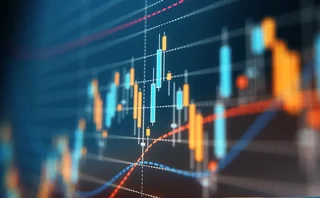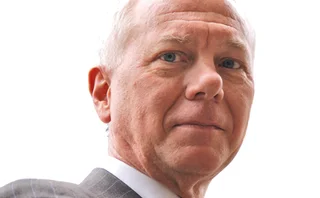
US economic data helps drive derivatives volumes – BIS
Stronger economic indicators in the US have pushed the derivatives markets into heightened activity this year, according to the quarterly review of the Bank for International Settlements (BIS), published yesterday.
The strengthening economy in the US also provoked a shift in commodity hedging towards non-precious metals and agricultural commodities, which saw trading rise 21% and 32% respectively, while trading in precious metals fell 31% in terms of number of contracts during the first quarter of 2005. Precious metals are normally preferred during downturns, while non-precious metals prices tend to anticipate recoveries. However, overall commodities hedge trading was flat during the period.
Trading in longer-term interest rate contracts - those with maturities of more than a year - also continued to rise in the first quarter of 2005, up 20% to $43 trillion in turnover terms. This increased trading activity could represent an anticipated divergence between US and euro-area interest rates, the BIS said.
As the BIS revealed in its semi-annual OTC report in May, credit default swaps (CDS) are still a comparatively small sector of the derivatives market – with a notional outstanding total of $6.4 trillion compared with $187 trillion for interest rate products at the end of last year – but the CDS market grew at an exceptional rate of 568% in the period June 2001-June 2004, compared with 121% overall growth for over-the-counter derivatives. The BIS expects this rapid growth to continue or even accelerate following the introduction in March of a weekly credit derivatives fixing service by US broker Creditex and UK data provider Markit.
The CDS market saw dramatic movement after a General Motors earnings warning on 16 March, with the US car manufacturer’s CDS spreads widening 90 basis points immediately and another 400bp over the following month. Spreads also widened on AIG debt protection after the US insurer warned of accounting problems. And the situation was similar with CDS on Danish facility services company, ISS, after a leveraged buyout left its bondholders effectively subordinated.
Although CDS spreads started to narrow again in May following better economic news, the BIS warned it is still unclear whether the sell-off has run its course.
Only users who have a paid subscription or are part of a corporate subscription are able to print or copy content.
To access these options, along with all other subscription benefits, please contact info@risk.net or view our subscription options here: http://subscriptions.risk.net/subscribe
You are currently unable to print this content. Please contact info@risk.net to find out more.
You are currently unable to copy this content. Please contact info@risk.net to find out more.
Copyright Infopro Digital Limited. All rights reserved.
As outlined in our terms and conditions, https://www.infopro-digital.com/terms-and-conditions/subscriptions/ (point 2.4), printing is limited to a single copy.
If you would like to purchase additional rights please email info@risk.net
Copyright Infopro Digital Limited. All rights reserved.
You may share this content using our article tools. As outlined in our terms and conditions, https://www.infopro-digital.com/terms-and-conditions/subscriptions/ (clause 2.4), an Authorised User may only make one copy of the materials for their own personal use. You must also comply with the restrictions in clause 2.5.
If you would like to purchase additional rights please email info@risk.net
More on Economics
Webinar – Nowcasting the US economy
Join CME Group Chief Economist, Blu Putnam, as he shares insights using alternative data and nowcasting to monitor developments in the US economy.
Fed Funds Futures in a Post-ZIRP World
As the FOMC returns to more active management of its key target rate, Federal Funds futures have experienced dramatic growth.
Challenging economic pessimism: an optimistic note
A contrarian, upbeat view of the long-term economic outlook
Economists, like hedge fund traders, need open minds
Economists, risk managers and traders must learn the lessons of crisis, says Kaminski
Fed wrong not to start QE tapering, says UBS economist
The surprise decision by the Federal Reserve last month not to scale back its quantitative easing programme will create more volatility, says economist
IMF's Blanchard warns Europe could drag world economy down
IMF chief economist says ‘three-speed’ global economy could be dangerous







